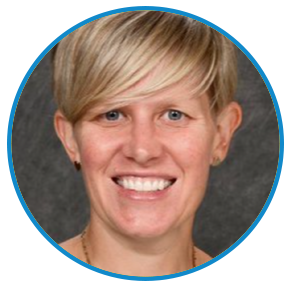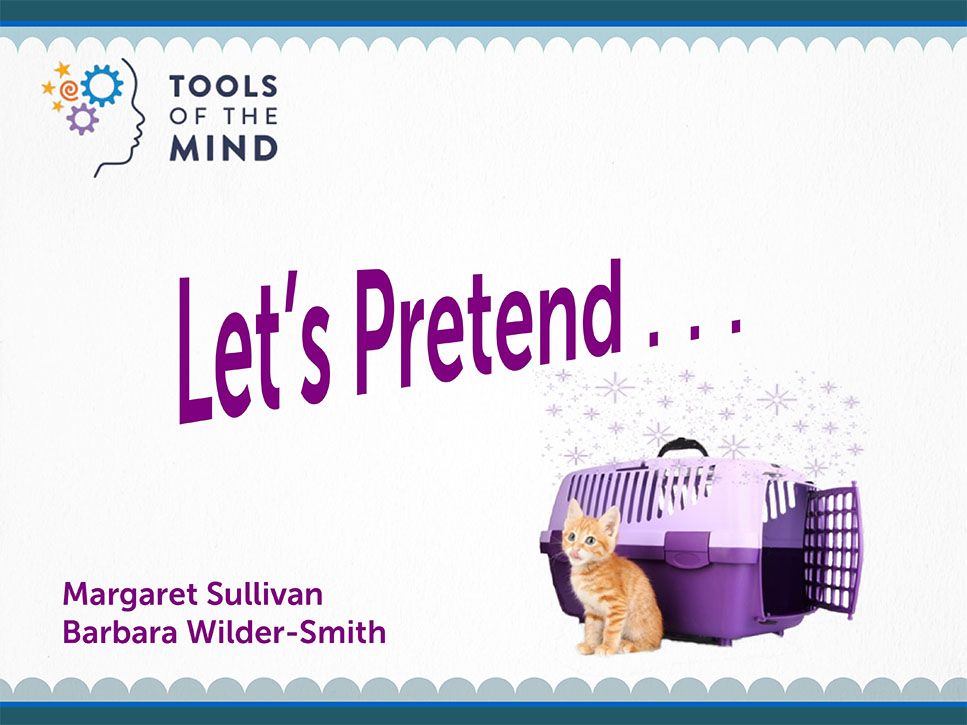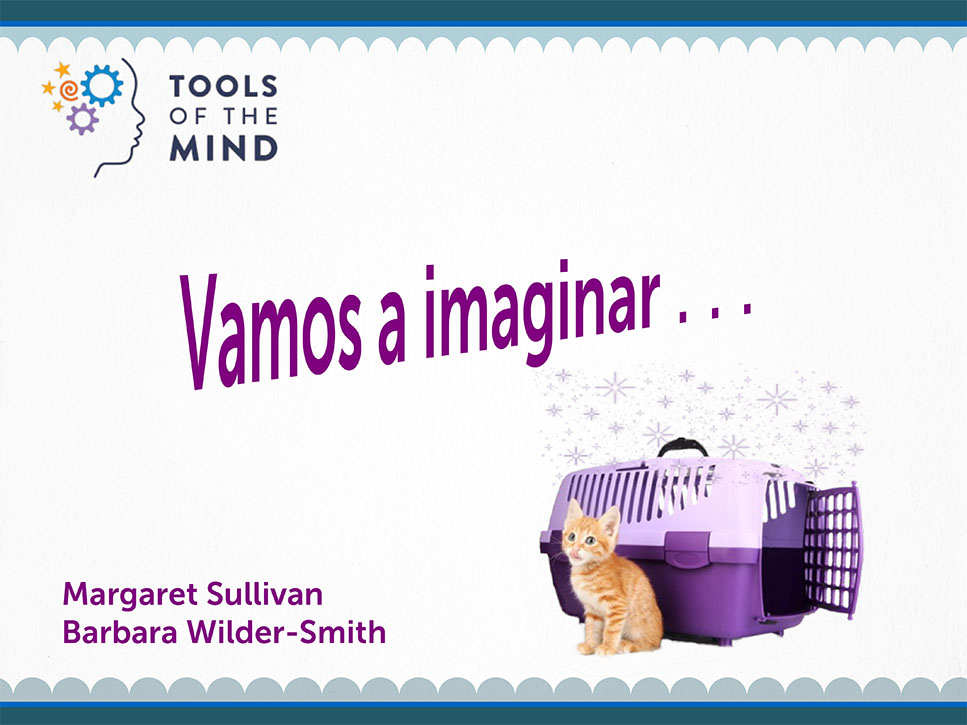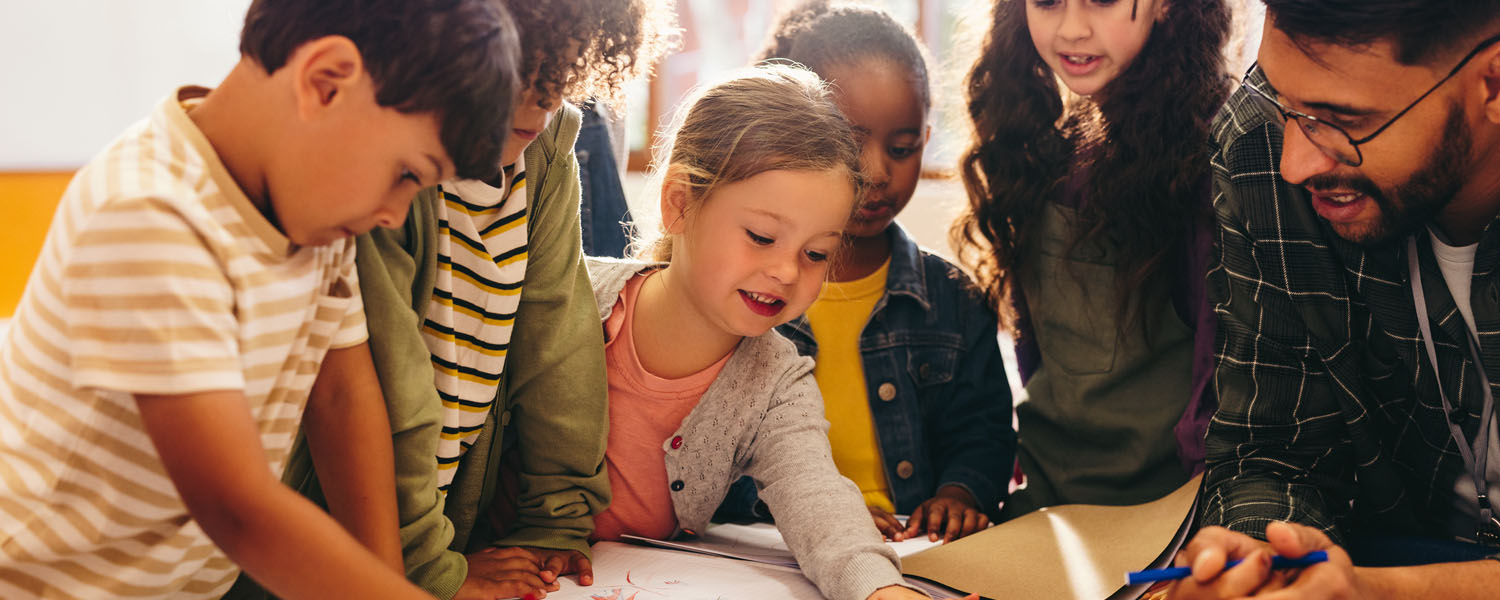Work Together Wednesday, April 10, 2024

Learning to Play Together Leads to Learning to Work Together
Tools of the Mind is delighted to join NAEYC in celebrating early learning, young children, their teachers, and their families!
Unlocking Potential: The Power of Play
Dr. Tina McMechen

Hi! This is me in my pink polyester leisure suit at the tender young age of five. One of my favorite things to do at that time was “play office.” I had a tiny desk, play typewriter, paper, and crayons at the ready. At the time, I was trying to work together and brainstorm with my team of stuffed animals. My team was fairly quiet and was a group that required a lot of energizing. I’m pretty sure we co-constructed something amazing in our office in my bedroom using the white nightstand that I mistakenly thought was my personal whiteboard to write our plans.
Today I wonder, what if instead of playing alone, I had been in a classroom where my teacher was an expert at facilitating self-regulation development? What if the play scenario I just described had been supported by someone grounded in developmental theory? How could something like this have benefited all of my peers––all of whom did not have toy typewriters or pink leisure suits in their homes, transforming all of our trajectories? I believe we’re at a critical juncture in education where early learning, especially learning how to focus, sustain and shift attention, persist at challenging tasks, manage emotions, and work as a team with every other student, is more important than ever.
It seems this concept may be on the mind of others, too. For example, acclaimed author Adam Grant recently appeared on the Today Show to discuss the importance of developing self- regulation. Although he is describing the critical need for this in the adult world of work, the foundation for these skills is built in early childhood education.
In fact, developmental psychologist Lev Vygotsky believed just like physical tools extend our physical abilities, mental tools extend our mental abilities. This enables us to solve problems and create solutions in the modern world. When applied to children, this means that to successfully function in school and beyond, children need to learn more than just facts and skills. According to Vygotsky, make-believe play is the activity with the most developmental potential in early childhood- it’s the key activity that supports the development of self-regulation.
On Work Together Wednesday, we’d like to highlight some classrooms across the country where teachers are helping children plan their play and bring scenarios to life in activities specifically designed to develop self-regulation, social-emotional, and academic skills that make working together an intrinsically motivating and fun experience.
Awaken imaginations: Download 0ur eBook and Infographic for inspiration
"Let's Pretend" eBook in English and Spanish versions
This eBook is a wonderful resource to help support mature make-believe play related to the world of work in your childcare setting and can be used to:
- Support background-building and co-construction of a veterinarian theme
- Generate ideas for props, roles, role language, and scenarios for this theme
- Introduce children to new vocabulary and support the use of language and gestures in make-believe play
Click on eBook image to download
Click on infographic image to download
Start your classroom’s prop-making journey today!
Find out how children can work together making props and creating the setting for make-believe play. Discover the lasting benefits of this kind of approach and learn some actionable tips to start using prop-making in your classroom. [Read more]
See how our Twitter Teachers of the Month
Support playing together while working together



Ms. Wingard's PreK opens a fancy restaurant
Meet our December 2023 Tools Preschool Teacher of the Month, Grace Wingard, and discover how her students pretended to open a fancy restaurant.
[Read more]
Ms. Sabatte-Doyle's class digs into learning at the buffet
Meet our January 2024 Tools Preschool Teacher of the Month, Mariana Sabatte-Doyle, and read about how her Denver preschoolers make-believe they are serving $5,000 hamburgers!
[Read more]
Ms. Ladner’s PreK opens a deli
Meet our October Tools Preschool Teacher of the Month, Jennifer Ladner, and learn about how she and her preschoolers are opening a pretend deli.
[Read more]





